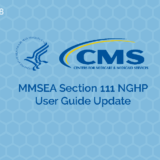Law Firm to Pay $250,000 to U.S. For MSP Non-Compliance (Failing to Reimburse/Resolve Medicare Lien from Personal Injury Settlement Proceeds)

The following is a press release from the U.S. Attorney’s Office for the District of Maryland on behalf of the U.S. Department of Justice (DOJ) announcing a Medicare Secondary Payer Act (MSP)[1] MSP non-compliance settlement with the U.S. by a plaintiff law firm from Maryland that failed to properly address or make Medicare conditional payment reimbursement (i.e. pay a Medicare lien) from the proceeds of a medical malpractice settlement secured for a firm client in 2015. This MSP non-compliance settlement is similar to the one we wrote about from June of 2018 regarding a plaintiff law firm in Pennsylvania.
“Department of Justice
U.S. Attorney’s Office
District of Maryland
FOR IMMEDIATE RELEASE
Monday, March 18, 2019
Maryland Law Firm Meyers, Rodbell & Rosenbaum, P.A., Agrees to Pay the United States $250,000 to Settle Claims that it Did Not Reimburse Medicare for Payments Made on Behalf of a Firm Client
Baltimore, Maryland – United States Attorney for the District of Maryland Robert K. Hur announced that Meyers, Rodbell & Rosenbaum, P.A., a law firm with offices in Riverdale Park and Gaithersburg, has entered into a settlement agreement with the United States to resolve allegations that it failed to reimburse the United States for certain Medicare payments made to medical providers on behalf of a firm client.
“Attorneys typically receive settlement proceeds for and disburse settlement proceeds to their clients, so they are often in the best position to ensure that Medicare’s conditional payments are repaid,” said U.S. Attorney Robert K. Hur. “We intend to hold attorneys accountable for failing to make good on their obligations to repay Medicare for its conditional payments.”
According to the settlement agreement, in and prior to 2012, Medicare made conditional payments to healthcare providers to satisfy medical bills for a client of the firm. Under the Medicare statute and regulations, Medicare is authorized to make conditional payments for medical items or services under certain circumstances, with the requirement that when an injured person receives a tort settlement or judgment, those receiving the proceeds of the settlement or judgment, including the injured person’s attorney, are required to repay Medicare for the conditional payments.
In December 2015, with the firm’s assistance and representation, the client received a $1,150,000 settlement in a medical malpractice action stemming from the client’s injuries. After Medicare was notified of the settlement, Medicare demanded repayment of the Medicare debts incurred from those conditional payments, but the firm refused to pay the debt in full, even when the debt became administratively final.
Under the terms of the settlement agreement, the firm agreed to pay the United States $250,000 to resolve the Government’s claims. The firm also agreed to (1) designate a person at the firm responsible for paying Medicare secondary payer debts; (2) train the designated employee to ensure that the firm pays these debts on a timely basis; and (3) review any outstanding debts with the designated employee at least every six months to ensure compliance.
This settlement reminds attorneys of their obligation to reimburse Medicare for conditional payments after receiving settlement or judgment proceeds for their clients. This settlement should also remind attorneys not to disburse settlement proceeds until receipt of a final demand from Medicare to pay the outstanding debt.
U.S. Attorney Robert K. Hur commended Eric Wolfish, Assistant Regional Counsel, United States Department of Health and Human Services, Office of the General Counsel, Region III, for his work in the investigation. Mr. Hur thanked Assistant United States Attorney Alan C. Lazerow, who handled the case.
# # #
Take Aways:
- Because the MSP grants both a direct lien right and a subrogation right to the U.S. to collect Medicare’s conditional payments, parties to a settlement should inquire, evaluate, confirm, and address all injury related Medicare expenditures for past medicals prior to, or at a minimum, at the time of settlement.
- Because the MSP grants a private cause of action (MSP PCOA)[2] and Medicare Advantage Plans that privately administer traditional Medicare coverage for enrolled Medicare beneficiaries (MAO’s) have successfully availed themselves of this MSP PCOA against primary plans[3], parties should also inquire, evaluate, confirm, and address all injury related MAO payments for past medicals as described above.
- While the Eleventh Circuit recently ruled that MSP private cause of action double damages could only be brought against primary plans[4], case law is not fully settled throughout the U.S. as to whether those other than primary plans like attorneys for Medicare beneficiaries would be liable for double damages under the MSP PCOA[5]. However, there is no doubt the double damages remedy clearly listed in the MSP’s direct cause of action provision applies in recovery actions by the U.S. Government against those who receive payments from primary plans, including Medicare beneficiaries and their attorneys[6].
- When representing an injured party, doesn’t it make sense to address the issue at the time of representation instead of waiting to see whether the issue results in legal liability or a legal malpractice claim stemming from MSP non-compliance?
- Due diligence is required for both the defense and plaintiff side to avoid unnecessary MSP non-compliance settlements/legal exposure.
[1] 42 U.S.C. 1395y(b)(2) et seq.
[2] “There is established a private cause of action for damages (which shall be in an amount double the amount otherwise provided) in the case of a primary plan which fails to provide for primary payment (or appropriate reimbursement) in accordance with paragraphs (1) and (2)(A).” 42 U.S.C. § 1395y(b)(3)(A).
[3] See e.g. In re Avandia Mktg., Sales Practices & Prods. Liab. Litig., 685 F.3d 353 (3d Cir. 2012); Humana Med. Plan, Inc. v. W. Heritage Ins. Co., 832 F.3d 1229 (11th Cir. 2016).
[4] MSPA Claims 1, LLC v. Tenet Florida, Inc. — F.3d —- 2019 WL 1233207 18-11816 (11th Cir. March 18, 2019).
[5] In Aetna Life Ins. Co., v. Nellina Guerrera et al., No. 3:17-CV-621 (JCH), 2018 WL 1320666, (D. Conn. Mar. 13, 2018), grocery store Big Y’s motion to dismiss was denied after Big Y, the alleged tortfeasor in the liability action and thus, a primary plan, settled and paid a Medicare beneficiary. Aetna, a MAO, was allowed to proceed with a MSP private cause of action for double damages against Big Y. However, the court granted motions to dismiss by the Medicare beneficiary and the Medicare beneficiary’s attorney, because under the MSP PCOA scenario, they were not primary plans.
[6] MSPA Claims 1, LLC v. Tenet Florida, Inc. — F.3d —- 2019 WL 1233207 18-11816 at 6 (11th Cir. March 18, 2019) (“[u]nlike the private cause of action, the government’s cause of action broadly permits lawsuits against ‘any entity that has received a payment from a primary plan’ – a grant that includes medical providers.” citing 42 U.S.C. § 1395y(b)(2)(B)(iii)(the MSP direct cause of action by the U.S.); Haro v. Sebelius, 747 F. 3d 1099, 1116 and U.S. v. Stricker, 524 F. App’x 500, 504 (11th Circ. 2013)(unpublished)).






